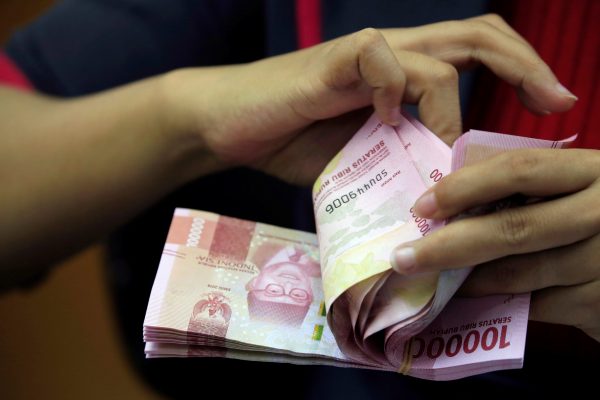Public anxiety climaxed when the Indonesian rupiah lost 10 per cent of its value against the US dollar.
Despite some concern about the budget deficit, government debt and the current account deficit, fears of another Asian financial crisis are largely unfounded. Currency depreciation is far lower than it was in 1998. Indonesian banks are stronger and Indonesia’s financial sector is far less vulnerable to foreign risks. The country’s foreign reserves vastly exceed those held in 1998 and the debt-to-GDP ratio is less than half of the 74 per cent that the country experienced in 1998. Both budget deficit and general debt levels remain under control and well within legal limits. This is happening even with Bank Indonesia following the normalising policy of the US Federal Reserve and raising interest rates seven times by a total of 1.75 percentage points in 2018.
More serious concerns emanate from the Indonesian government’s lack of a long-term economic strategy with a focus on technology, productivity and competition. The President’s priorities in the ‘Nawa Cita’ agenda for national development aim to improve infrastructure, power generation and people’s welfare. These are desirable objectives. But they mostly address existing development gaps and do not provide a long-term vision for Indonesia’s future.
Instead, the President continues a costly nationalist strategy that relies largely on state-owned enterprises. In 2018, Freeport was finally forced to divest to allow for domestic control over natural resources. State-owned holding company PT Indonesia Asahan Aluminium sold bonds worth US$4 billion to fund the acquisition of Freeport shares. Other foreign investors exited Indonesia’s commodities market at the expense of their expertise and technology. The ownership transfer is said to have caused a 4 per cent drop of 30,000 barrels in the country’s daily oil production.
Campaigns for parliamentary and presidential elections began in the second half of 2018, adding to political sensitivities and ultimately preventing an adequate response to Indonesia’s twin deficit. Imposing import tariffs on 1147 commodities may have pleased the public but added little to balance the current account.
More importantly, fearing popular discontent, the government did not cut domestic oil subsidies to reduce government spending and curb imports. Instead, it held on to its decision that state-owned energy holding company Pertamina must sell its fuel below market prices nationwide. This move is a significant reason why the current account deficit reached 3.37 per cent of GDP in 2018. The oil and gas sector had a shortfall of US$12.21 billion until November this year. It eliminated an actual surplus in the non-oil and gas sector and was by far the largest contributor to the overall deficit.
In general, 2018 was a difficult year for the economy. Facing an inconsistent, inefficient, opaque and often outright unfavourable regulatory environment, business leaders were not positive and remained neutral in the Kontan CEO Confidence Index. The Nikkei Indonesia Manufacturing Purchasing Managers’ Index reached a five-month low in November. Output growth slowed, new orders failed to improve and export sales dropped throughout the entire year. Foreign direct investment plummeted by more than 20 per cent year-on-year in the third quarter of 2018.
It remains uncertain how economic policy will look once a new administration takes office in mid-2019. The present government will probably refrain from engaging in new economic initiatives before the end of its term. It has to manoeuvre with extreme care during campaign time amid the varying interests of supporters and opponents. A daring attempt to open up 54 additional sectors to foreign investment in November, for instance, was shot down by domestic interest groups that are particularly vocal around elections.
The free trade agreement with Australia remains on hold despite previous plans to have it signed in December. As a result, the economy remains relatively unexposed to international value chains and continues to have a comparatively low trade-to-GDP ratio.
Given this insulation, Indonesia does not stand to benefit from China’s strategic shift away from labour-intensive industries. The growing digital economy might give Indonesia some respite. Investors in e-commerce, financial technology and the sharing economy are eyeing the impressive purchase power in Indonesia’s large consumer markets. After all, the largest driver of economic growth remains private consumption, which increased by almost a third from 2014 to 2018.
But developments in capital-intensive service industries will not solve major obstacles to the development of the manufacturing and agricultural sectors. As these are particularly important for Indonesians with lower skills and incomes, it appears that next year will be business as usual, again, for most Indonesians.
Rainer Heufers is the Co-founder and Executive Director of the Center for Indonesian Policy Studies in Jakarta, Indonesia.
This article is part of an EAF special feature series on 2018 in review and the year ahead.

